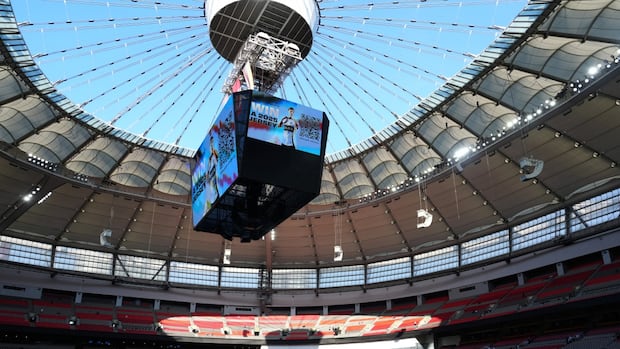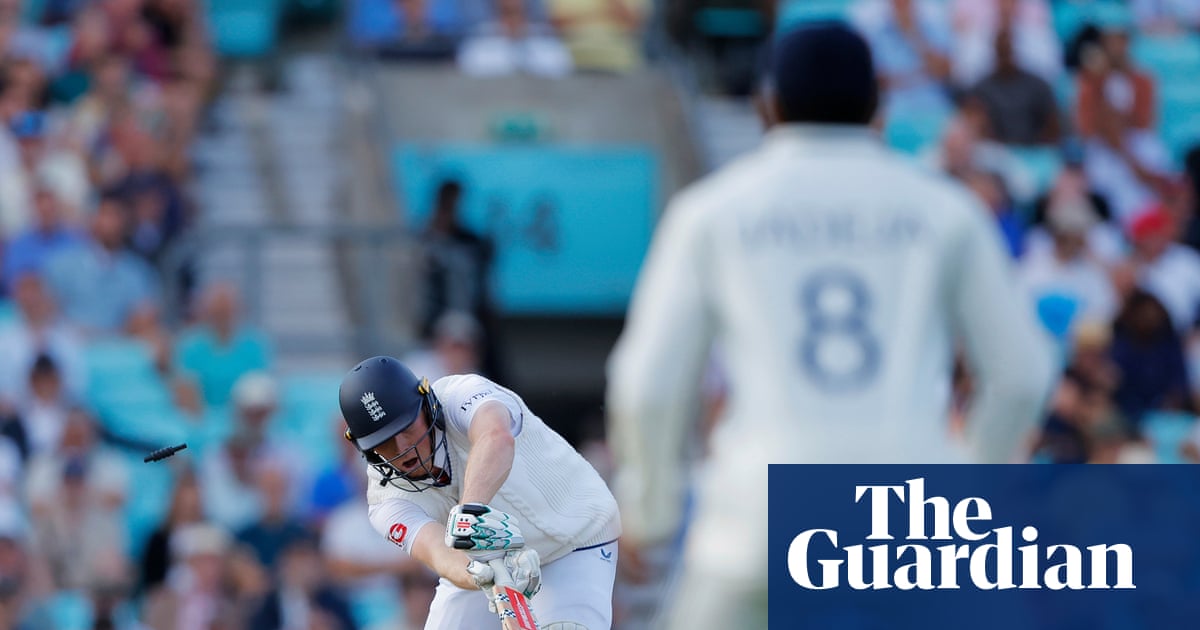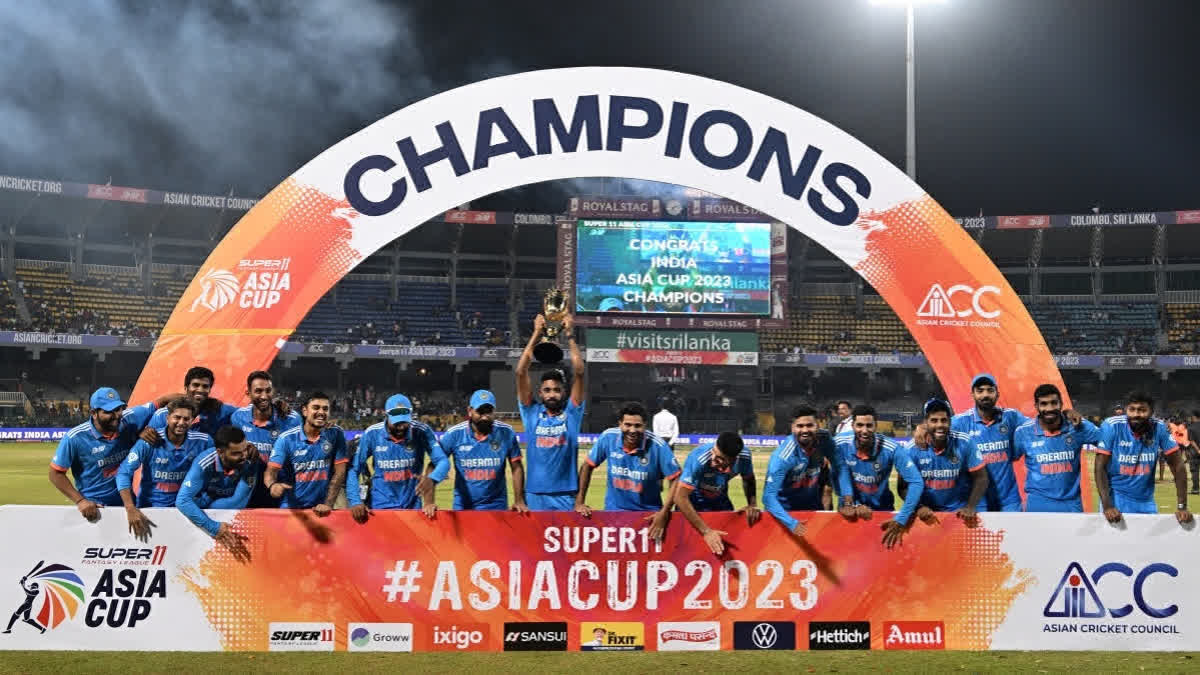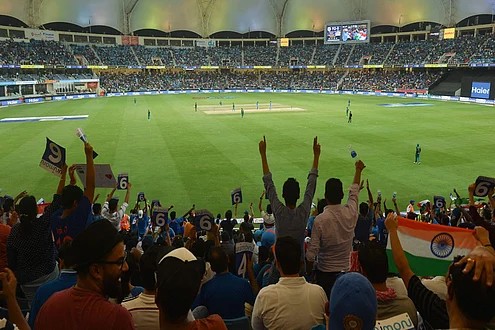Vancouver's set to co-host World Cup next year. Who stands to benefit?

The Current What does hosting FIFA’s World Cup mean for Canadian cities?World Cup soccer is just a year away from descending on Vancouver. And while some are thrilled about international football stars coming to their backyard, others are concerned about the potential negative effects of hosting one of the biggest sporting tournaments in the world."There's a concern that the city is really not seeing this as an opportunity to bring the community in ... but an opportunity to shut the community out in order to invite particular kinds of visitors to the expectations of FIFA," Meg Holden, an urbanist at Simon Fraser University, told The Current guest host Catherine Cullen.Holden's concern stems from a 98-page document detailing the stipulations of Vancouver's deal with FIFA to host part of the 2026 World Cup, which was made public on July 15 thanks to a three-year legal battle from independent journalist Bob Mackin .Vancouver and Toronto will both represent Canada as co-host cities during the tournament, jointly hosted in 2026 by Canada, the U.S. and Mexico from June 11 to July 19.But even though just seven games will be played at B.C. Place in Vancouver, some people have big concerns about its impact on the community, and who will actually see the profits.Branding, traffic, 'beautification' rules appliedAccording to the document, Vancouver will have to enforce what's called a controlled area on a match day, as well as the day before a match day, within two kilometres of B.C. Place.That means the city will be required to cover up or remove "any advertisement and commercial identification located within the controlled area," though what that will look like is unclear.The document also says that public sales of food, beverages, fan items, souvenirs or similar products in the controlled area "must be in accordance with the restrictions defined, and further instructions provided by FIFA."In an emailed statement to the CBC, the Vancouver Host Committee said the controlled area "is in place specifically for the purpose of preventing unauthorized marketing to ensure protection of the FIFA Intellectual Property (IP), also known as their brand."It said that it will not require businesses in the area to close.City beautification, which involves making the city "as attractive as possible," is also mandatory within that same radius, along with traffic restrictions. Holden says this is especially alarming, as that includes Vancouver's Downtown Eastside, which has struggled with crime and homelessness , and could make life difficult for the most vulnerable."Air quality inside can be terrible. Air quality outside could be terrible if we have a bad forest fire season. What are the plans to make life tolerable for people?" said Holden.City councillor Mike Klassen told CBC's On The Coast guest host Amy Bell that the city won't displace anyone, including those who live in the Downtown Eastside.Klassen said he wants the city to be "really sensitive and supportive" of people in the downtown core, but also wants to ensure "our city sparkles" as tens of thousands of spectators from around the world are about to visit.WATCH | Vancouver councillor addresses business concerns over FIFA contract: Vancouver councillor addresses business concerns over FIFA contractCost of doing businessFIFA is leaving additional costs for venues, policing, organizing, or security to the city. Organizers estimate it will cost between $532 million and $624 million to host the event in Vancouver. Some of that will be covered by the provincial government.The Vancouver city skyline is pictured in April of 2025. The area within two kilometres of B.C. Place will be considered a controlled area during the World Cup, which comes with a number of stipulations. (Ben Nelms/CBC)Despite reassurances from the city, Jules Boykoff says residents should be very concerned about what hosting a World Cup event will mean for them.Boykoff is a professor of politics and government at Pacific University in Oregon, and has taken a deep dive into the long-term impacts of mega sporting events."These sporting events, like the FIFA World Cup of soccer or the Olympic Games, tend to benefit the upper echelons of economic society at the expense oftentimes of working class people in the host city," he said.The province has said it estimates about a million out-of-province travellers will visit Vancouver between 2026 and 2031 because of the event, which will lead to an additional $1 billion in visitor spending.But Boykoff, who has written six books on the impact of the Olympic Games on host cities, finds it's usually the big sponsors who are raking in the extra cash, not local businesses.WATCH | Vancouver's FIFA World Cup contract could affect downtown restaurants: Vancouver's FIFA World Cup contract could affect downtown restaurants"When you look at those rosy forecasts that were made in the bid process for the FIFA World Cup, they've really wilted under the heat of reality," said Boykoff."I mean, costs are increasing in city after city, and these cities are facing real fiscal pressure."In 2018, Chicago withdrew its bid to host World Cup games, saying it felt FIFA could not provide necessary details around how Chicago residents would be impacted.Then in 2021, Montreal withdrew its bid over a lack of provincial government support. Edmonton had a bid to host games, but wasn't chosen .Meanwhile, Boykoff says the World Cup means big bucks for its host organization. FIFA reported over $7.5 billion US in revenue between 2019 and 2022. PR firm Pitch Marketing Group estimates FIFA's revenue will surpass $10 billion US at the 2026 World Cup.According to Vancouver's 98-page contract, FIFA will keep the revenue from ticket sales and sponsorships."So they have money and they could spread it around, but they tend to be quite miserly with it and look out for their own interests, not the city in which they're visiting," said Boykoff.Meg Holden is concerned about what the impact of the event will be on those living in Vancouver's Downtown Eastside. (Ben Nelms/CBC)City accountabilityMeg Holden says the City of Vancouver already took a big misstep when it originally promised a field at Memorial South Park as training grounds for the Canadian men's national team, switched to the existing National Soccer Development Centre at UBC following public outcry.The host committee says it's working with major businesses within the area to minimize disruptions, and will be ramping up that outreach to include local businesses, stakeholders and residents over the next year.Holden says the city could benefit from doing something similar to what it did ahead of the 2010 Vancouver Olympics. It hosted a plebiscite about the Winter Games, giving people a chance to voice their concerns and hopes for the big-time event."What is going to be the legacy of this hosting event?" he said. "Soccer is a great cultural melting pot, but are we actually going to see those kinds of benefits in Vancouver next year and then for the coming years?"









